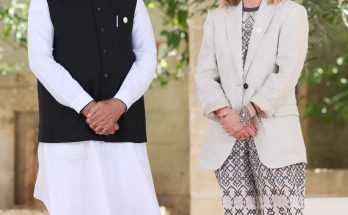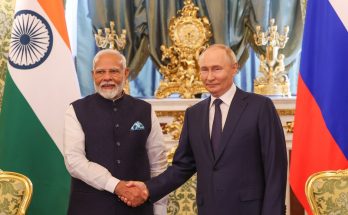
SEOUL/NEW DELHI: Calling for deepening coordination between New Delhi and Seoul in shaping the Indo-Pacific, External Affairs Minister S. Jaishankar underlined the need for a quick conclusion to the review of India’s trade agreement with South Korea to realise the full potential of economic ties between the two countries.
Speaking at the Korea National Diplomatic Academy in Seoul on March 5, Mr Jaishankar said that the two countries must work together to find more “meeting points” and increase their engagement to realise their potential. “To realise our potential, it is important we intensify our engagement in different spheres. Certainly, we need more political discussions, more strategic conversations – which is why I am here,” the external affairs minister said on March 5 while speaking at the Korea National Diplomatic Academy in Seoul.
“We need stronger business connects and technology interactions. The long-pending review of our CEPA (Comprehensive Economic Partnership Agreement) must be expedited so that it can be upgraded. We will have to identify more intersections and meeting points that work for both of us,” Jaishankar added.
In India’s view, the Comprehensive Economic Partnership Agreement (CEPA) between India and South Korea should be more balanced and equitable. India wants is pushing for greater access to the South Korean market for certain goods such as steel, rice, and shrimp. South Korea, on the other hand, is said to want greater access to India in sectors such as auto components and chemicals.
Dr Jaishankar’s visit to South Korea started with a meeting with Korean Director of National Security Chang Ho-jin. As regional middle powers with an agenda to mitigate security risks posed by increasing Chinese aggression, India and Korea are set to bolster security cooperation. “Good start to my visit. Met with Director of National Security Chang Ho-jin in Seoul today. A useful discussion on our shared convergences in the Indo-Pacific and contemporary regional & global issues” posted Jaishankar on X.
On March 6, Minister Jaishankar will co-chair the 10th India-Republic of Korea Joint Commission Meeting (JCM) with Cho Tae-Yul, the Korean Minister of Foreign Affairs.
Jaishankar also called on Korean Prime Minister Han Duck-soo to discuss ways to enhance bilateral relations and also appreciated the PM’s positive sentiments for India-South Korea ties. “Honored to call on PM Han Duck-soo today in Seoul. Appreciated his positive sentiments for India-Korea ties and value his guidance ahead of the 10th Joint Commission Meeting tomorrow,” said Jaishankar on X.

As the calls for de-risking global supply chains are growing louder, Jaishankar also met South Korean Trade, Industry and Energy Minister Ahn Dukgeun to discuss “trade and economic cooperation, both current and future.” Economic linkage with South Korea not only opens new avenues for investment but also contributes to India’s efforts to diversify its trade partnerships and reduce dependence on any single market.
In his address at the Korea National Diplomatic Academy, Jaishankar raised the bar for India-South Korea partnership. “We are both democracies, market economies and believers in the rule of law. Our modern history holds some parallels and both of us have paid the price of events beyond our control. In recent years, challenges like terrorism and WMD proliferation have impacted our national security. We have learnt to be sensitive to changing currents of the global order. While our solutions may be suited to our particular national circumstances, working together has always been to our common advantage,” said Jaishankar.
His address highlighted the impact of the India-Korea partnership in the Indo-Pacific region. “As two significant G20 members, India and RoK have a growing responsibility to actively contribute to the reshaping of the global order,” he said while pitching for greater collaboration in new technology and ensuring stability of the international economy. He urged the two countries to intensify engagements in different spheres, increase political and strategic discussions, strengthen business connections and technology interactions, identify mutual intersections and recognise collaborative strengths.
The minister’s visit to South Korea underscores enhancing people-to-people ties as he met various think tank leaders from Korea. Jaishankar’s power-packed engagements in South Korea signify India’s proactive role in shaping the Indo-Pacific landscape. As China’s influence grows, India’s strategic and defence engagement with this nation becomes pivotal for regional stability and prosperity. “This is a time to introspect and strategize how we could be doing more by doing differently,” said Jaishankar.
Author Profile
- India Writes Network (www.indiawrites.org) is an emerging think tank and a media-publishing company focused on international affairs & the India Story. Centre for Global India Insights is the research arm of India Writes Network. To subscribe to India and the World, write to editor@indiawrites.org. A venture of TGII Media Private Limited, a leading media, publishing and consultancy company, IWN has carved a niche for balanced and exhaustive reporting and analysis of international affairs. Eminent personalities, politicians, diplomats, authors, strategy gurus and news-makers have contributed to India Writes Network, as also “India and the World,” a magazine focused on global affairs.
Latest entries
 In ConversationJuly 26, 2024India-Italy defence collaboration can extend to third countries: Anil Wadhwa
In ConversationJuly 26, 2024India-Italy defence collaboration can extend to third countries: Anil Wadhwa In ConversationJuly 23, 2024Italy views India as a key partner in Indo-Pacific: Vani Rao
In ConversationJuly 23, 2024Italy views India as a key partner in Indo-Pacific: Vani Rao DiplomacyJune 29, 2024First BRICS unveils a roadmap for boosting tourism among emerging economies
DiplomacyJune 29, 2024First BRICS unveils a roadmap for boosting tourism among emerging economies India and the WorldJune 11, 2024On Day 1, Jaishankar focuses on resolving standoff with China
India and the WorldJune 11, 2024On Day 1, Jaishankar focuses on resolving standoff with China






